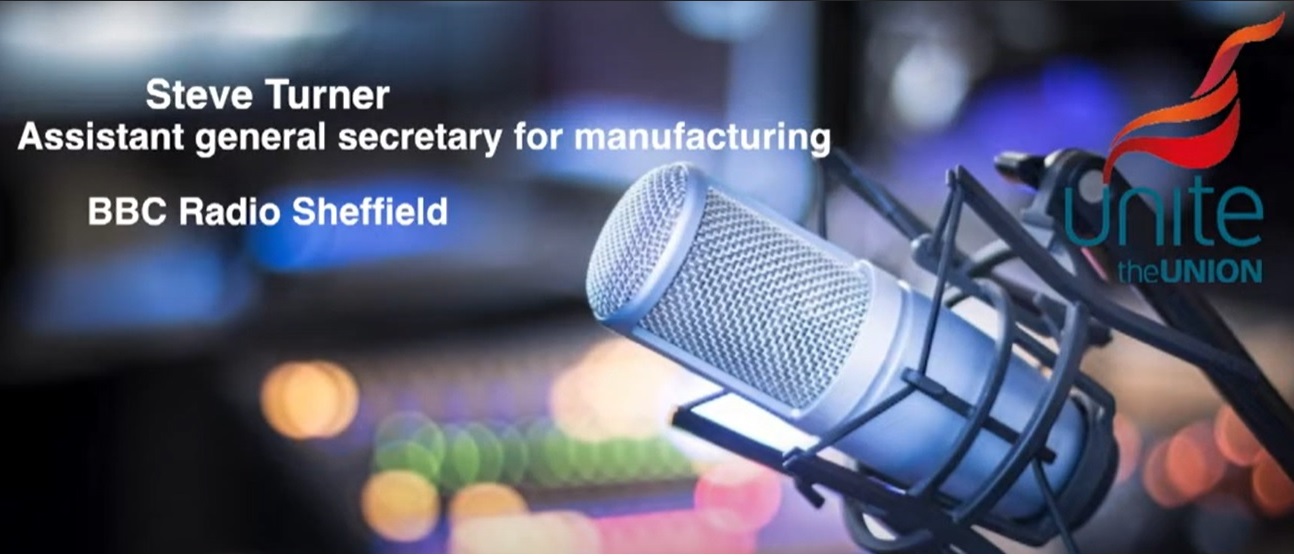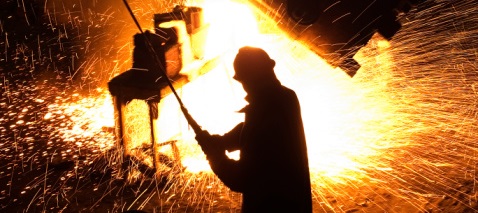‘Fight for survival’
The UK steel workforce faced one of its worst blows today (January 18) as steel giant Tata announced the loss of just over 1,000 jobs, the majority of which will be axed at the steelworks in Port Talbot, Wales.
The news is particularly grim for the suffering steel industry, as the Tata plant in Port Talbot is the largest steelworks in the entire UK and currently employs more than 4,000 people.
Starting salaries at the Port Talbot plant stand at £30,000 – double the minimum wage. The steelworks pumps £200m directly into the economy in salaries alone .
In total, 750 jobs are set to go at the Port Talbot plant, with an additional axing of 200 jobs in support functions and a further 100 jobs at steel mills in Trostre, Corby and Hartlepool.
Today’s news adds to the growing number of steel job losses that began in the summer of last year. Over the last six months alone, the steel sector has haemorrhaged more than 5,000 jobs.
“This is a critical blow for not only Port Talbot but for all of south Wales as well,” said Unite Wales area branch secretary Mark Turner in response to today’s announcement. “The steel industry here has struggled for many years but this latest round of job losses will be devastating,”
Turner explained just how dependent on the steel industry the entire south Wales area is.
“These job losses will be felt by all, even for those who don’t directly work in the steel industry,” he said. “News agents and local pubs will suffer once well-paid, highly skilled jobs are gone because households in these communities won’t have that extra money to spend at their local businesses.”
Indeed, a 2012 report by Cardiff University economist Calvin Jones estimated that, including the indirect impacts across the supply chain, Tata Steel’s total economic impact in Wales stood at £3.2bn in 2010. What’s more, every job at Tata in Wales supports another 1.22 jobs in the wider Welsh economy.
Turner noted that the feeling among Unite members facing job losses is grim.
Uncertain future
“They’re extremely upset – they don’t know where their future lies at this very uncertain time,” he said. “After so many blows to the industry in Wales over the last two decades, there’s this sense among the workforce that this will be the final time that management comes to the table, that this is, in effect, the last fight for survival.”
Turner challenged the UK government to step in.
“The Welsh government has been much, much more supportive than the UK government has been in supporting its local industries,” he said, pointing to the automotive industry as one success story in which businesses blossomed thanks to Welsh government support.
“Just as [first minister of Wales] Carwyn Jones has said, the UK government needs to come off the fence and decide – is it going to support the UK workforce and an industry that’s central to local and national economies or is it going to support cheap Chinese imports by its continued inaction?”
Although the Tata site in Shotton, north Wales, was not affected by today’s job losses, Unite/Steel Managers Association (SIMA) chairman for Shotton Anthony Simpson highlighted the impact today’s job losses will have on the wider Welsh and national steel workforce.
“The constant drip feed of negative news within the UK Industry has had a serious detrimental impact on the stability and retention of a frustrated workforce,” he said. “But this latest announcement today has sent waves throughout all Welsh plants and within the UK Industry, further destabilising and damaging the ability to retain key skills within all plants.
“We need positive action from the government and Europe now to provide stability before the ship is fundamentally wrecked by inaction,” Simpson added.
Less talk, more action
Unite national officer Harish Patel pledged that the union will do everything it can to support members while “pressing Tata Steel for guarantees on no compulsory redundancies”.
“The knock on effects of these latest job losses will be felt throughout the supply chain and the wider manufacturing community across the UK torpedoing George Osborne’s promise to rebalance the economy,” he said.
“When will the penny drop with government ministers that a strategically important part of the UK economy faces wipe out because of their continued failure to take decisive and swift action?” Patel demanded. “It dropped years ago with countries like Germany and the USA who support their steel industry, but has so far failed to do so with minsters here in the UK.
“Guidance from the government on the procurement of British steel for infrastructure projects is all well and good, but it needs to be urgently turned into orders and cast iron guarantees that if it’s built for Britain it uses British steel,” he argued.
“The consequences of not taking action to decisively support our steel industry and tackle the dumping of Chinese steel will be more devastating announcements like the one today.”
Unite Wales secretary Andy Richards agreed.
“People should be under no illusion,” he said. “Inaction by the Conservative government in Westminster to decisively support the steel industry now threatens the future of the Welsh steel industry. It is time for ministers in London to provide maximum assistance to the Welsh government and to act swiftly to save our steel.”
Richards noted that the union will be working closely with first minister Carwyn Jones and economy minister Edwina Hart to make sure workers and communities get the support they need.
Support our industry call
The business community, too, emphasised the importance of government support.
“Chinese steel imports look to be having a big impact and it’s important that the European Commission urgently reports back on whether the market has been distorted unfairly by excess market supply,” noted the Confederation of British Industry (CBI)’s Wales director Emma Watkins.
“Our industrial base can best be supported by developing a long-term industrial strategy, protecting research and development investment to help raise productivity and making energy costs more competitive,” she added.
“The Welsh and UK governments must work together, and alongside business, for Wales to thrive by developing new and compelling offers for inward investment and export support.”
Chief executive of Tata Steel’s European operations Karl Koehler said that the European Commission needed to accelerate its response to unfairly traded imports and “increase the robustness of its actions”.
“Not doing so threatens the future of the entire European steel industry,” he said. “And while we welcome progress on UK energy costs, the Government must take urgent action to increase the competitiveness of the UK for its vital steel sector. This includes lowering business rates and supporting energy efficiency and anti-dumping cases so we can compete fairly.”
Stay tuned for updates on UNITElive as Tata and steel unions begin a consultation on today’s job losses.
 Like
Like Follow
Follow


